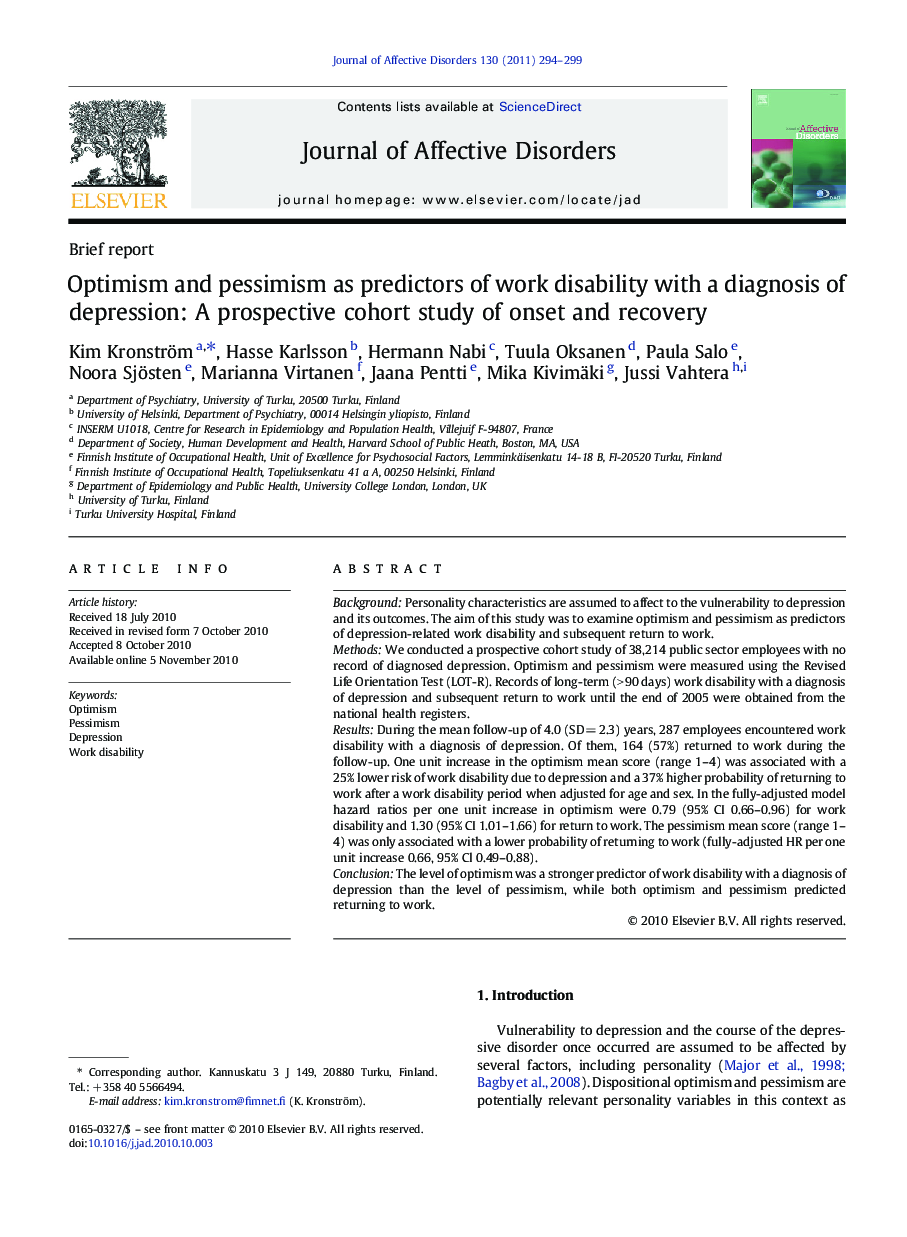| Article ID | Journal | Published Year | Pages | File Type |
|---|---|---|---|---|
| 6236262 | Journal of Affective Disorders | 2011 | 6 Pages |
BackgroundPersonality characteristics are assumed to affect to the vulnerability to depression and its outcomes. The aim of this study was to examine optimism and pessimism as predictors of depression-related work disability and subsequent return to work.MethodsWe conducted a prospective cohort study of 38,214 public sector employees with no record of diagnosed depression. Optimism and pessimism were measured using the Revised Life Orientation Test (LOT-R). Records of long-term (>Â 90 days) work disability with a diagnosis of depression and subsequent return to work until the end of 2005 were obtained from the national health registers.ResultsDuring the mean follow-up of 4.0 (SDÂ =Â 2.3) years, 287 employees encountered work disability with a diagnosis of depression. Of them, 164 (57%) returned to work during the follow-up. One unit increase in the optimism mean score (range 1-4) was associated with a 25% lower risk of work disability due to depression and a 37% higher probability of returning to work after a work disability period when adjusted for age and sex. In the fully-adjusted model hazard ratios per one unit increase in optimism were 0.79 (95% CI 0.66-0.96) for work disability and 1.30 (95% CI 1.01-1.66) for return to work. The pessimism mean score (range 1-4) was only associated with a lower probability of returning to work (fully-adjusted HR per one unit increase 0.66, 95% Cl 0.49-0.88).ConclusionThe level of optimism was a stronger predictor of work disability with a diagnosis of depression than the level of pessimism, while both optimism and pessimism predicted returning to work.
